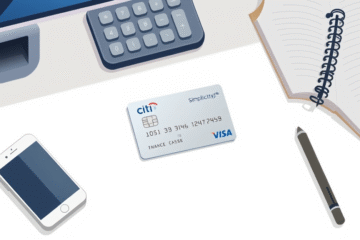Debt Negotiation has become a crucial skill in today’s financial landscape.
Understanding how to effectively communicate with creditors and banks can make a significant difference in managing your financial obligations.
This comprehensive guide will explore the essential steps and strategies for successful debt negotiations, from assessing your total debt to crafting compelling repayment proposals.
Whether you’re dealing with credit card debt, personal loans, or other financial obligations, mastering these negotiation techniques can help you achieve better terms and regain financial stability.
Understanding Your Total Debt Amount
Calculating your total debt involves carefully reviewing all financial records, including bank statements and credit reports. These documents offer insights into both open and closed accounts, which are essential.
Start by listing every liability, ensuring you include loans, credit card balances, and any personal debts. A comprehensive list allows for a clear understanding of your financial obligations.
Checking your credit report offers more than just a score; it highlights outstanding debts and any current accounts. It’s crucial to verify the accuracy of this information to ensure no debts are overlooked.
Knowing your total debt empowers you significantly when negotiating with creditors. This knowledge gives you leverage to actively discuss terms and potentially secure better rates or payment plans.
Being aware of the correct figures ensures that you can approach creditors with confidence, knowing your financial standing. For calculating methods, check Debt calculation methods.
Ultimately, the key to successful debt negotiation lies in the accuracy of your financial assessments and the strategies you employ.
By mastering this, you create a foundation for better financial management and negotiations.
Assessing Your Financial Situation
| Category | Details |
|---|---|
| Income |
|
| Expenses |
|
| Debt |
|
Start by listing all your income sources, including salaries and investments.
No matter how small, detail each entry accurately to get a comprehensive understanding of your finances.
Next, track your monthly expenses, dividing them into essential and non-essential categories.
This step helps identify areas where spending can be reduced to improve your financial health.
When examining debt, gather details on all current debts, credit card balances, and loan amounts.
Noting down interest rates and payment schedules can help you prioritize debts to pay off early.
Once all data is compiled, compare income against expenses and debts to evaluate financial stability.
Identifying disparities highlights areas for improvement, motivating more effective financial decision-making.
Explore methods to enhance your financial standing from strategies like budgeting to debt consolidation.
Keep an open mind and actively seek better terms or offers from creditors to alleviate financial burdens.
Exploring Negotiation Options
When it comes to negotiating debts, individuals can explore a range of options tailored to their financial situations.
- Debt Consolidation Loans: These loans combine multiple debts into one, simplifying payments. Benefits include a potentially lower interest rate and streamlined finances. However, drawbacks might involve needing a good credit score and risking more debt if mismanaged.
- Voluntary Debt Settlement: Offers reduced overall debt by negotiating a one-time payment. The advantage is significant debt reduction, while risk includes initially hurting your credit score.
- Extended Payment Plans: Allows for smaller payments over a more extended period. Advantages include making payments more manageable, though downsides might involve paying more interest over time.
- Debt Transfer: Moving debt to another lender to secure better terms. Pros include better interest and terms, but it’s crucial to read terms carefully to avoid new pitfalls.
- Seek Financial Counseling: Offers professional advice tailored to your needs. Best for creating a sustainable plan, though investing in services might be a concern.
Each choice has potential pitfalls, so carefully consider your situation and capabilities. Implementing any strategy requires dedication to see your financial transformation.
Researching Offers from Different Institutions
When evaluating debt relief offers from banks, comparing interest rates is essential. Banks may offer varying rates depending on factors like credit score. Consider all available information to make informed choices. Banco Central’s tool can facilitate this process by listing regulated financial institutions.
Evaluating features such as repayment terms also impacts your decision. Long-term agreements might seem attractive due to lower monthly payments, but can result in higher overall costs. Utilize FinanZero for comparing offers from extensive networks of lenders effectively.
Utilize financial tools like tables to compare key features efficiently. A table should include columns for Interest Rates, Term Lengths, and Monthly Payments. This structured overview can simplify comparisons and highlight differences between offers.
Support resources provide guidance in evaluating debt relief options comprehensively.
For example, the BNDES platform offers insights into interest rates trends in various financial products.
Incorporate additional insights when making financial decisions. Remember to verify all financial institution’s credibility through official databases. Check known offerings like BNDES, ensuring transparency and reliability. For comprehensive details, visit Nao Me Perturbe to understand financial interactions, especially consigned credit operations.
Approaching debt relief with knowledge and utilizing financial resources ensures a well-rounded evaluation of options available, securing the best offer tailored to your needs.
Negotiating Repayment Plans
To effectively negotiate repayment plans with creditors, begin by doing a thorough assessment of your current financial situation. Identify how much you can realistically afford to pay each month.
Compile all relevant documentation, such as debt statements and income proof. This will support your credibility when negotiating. Prepare by drafting a clear repayment proposal that fits within your budget.
Next, initiate contact with your creditor to discuss possible solutions. Be honest about your financial challenges and express your intent to resolve the debt. Open communication is key.
Suggest a repayment plan, possibly including lower interest rates or extended terms. Most importantly, be ready to negotiate and emphasize benefits for both parties, such as maintaining customer relationships.
Be persistent and patient throughout discussions, and be ready to ask for a supervisor if necessary to get the best terms.
Finally, make sure any agreement is documented in writing. This ensures all parties have a clear understanding of the agreed terms. For more information on handling debt negotiations, visit SPC Brasil.
Effective Communication with Creditors
Effective communication with creditors requires a strategic approach to ensure successful negotiations. Clearly outline your financial situation and objectives before engaging in any discussions with your creditors. This clarity helps set realistic expectations on both sides. Utilize active listening skills to understand their perspective and constraints. Regular communication is vital; keeping open lines ensures transparency and shows commitment to resolving debts. Explore communication strategies here for maintaining good relations.
Presenting a list of dos and don’ts can further aid in effective communication.
- Do maintain a respectful tone at all times.
- Do provide honest financial information.
- Don’t ignore calls or messages from creditors.
- Don’t agree to terms you can’t meet.
These practices emphasize the importance of integrity and responsibility in negotiations. A respectful and understanding tone will foster a more cooperative environment. Find additional tips here, which can guide you towards more effective communication strategies.
Additionally, consider seeking professional advice if negotiations become complex or challenging. Professional mediators or advisors can offer valuable insights and strategies tailored to your specific circumstances. They may also assist in drafting proposals or counteroffers. Proactive measures, such as reviewing negotiation strategies, are key steps towards successful debt resolution. Regular updates and clear communication build trust, allowing both parties to find a mutually beneficial resolution. By focusing on flexibility and transparency, you will be better positioned to negotiate favorable terms.
Successfully negotiating your debts requires patience, preparation, and persistence.
By following these proven strategies and maintaining open communication with your creditors, you can work toward achieving more manageable payment terms and a stronger financial future.



0 Comments